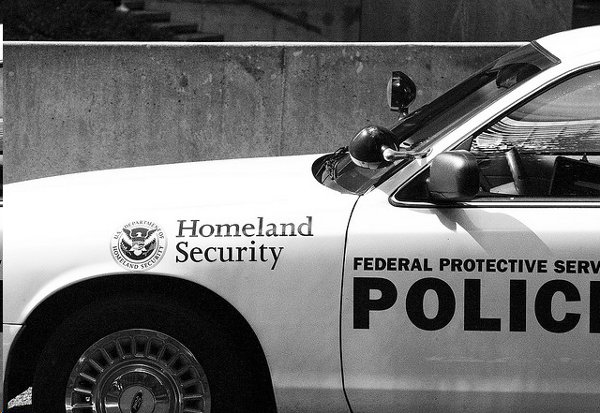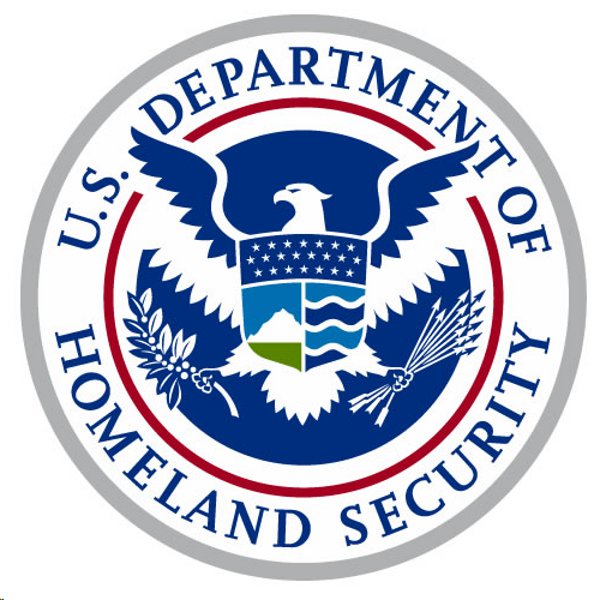Surveillance, Domestic Spying and Invasion of Privacy in Post-Sept. 11 America

In the past few months, a mounting number of small but substantial protests have taken place within the United States. They have emerged in opposition to various legislative and governmental efforts to obtain ex-post facto permissions to engage in expansive domestic spying and employ unfettered authority of detention, search, and extraordinary rendition against U.S. citizens.
In particular, political dissidents, activists, whistleblowers, and otherwise “threatening” entities have been the focus of these initiatives, as well as the loudest voices of protest against these punitive forces. Three recent legislative initiatives have bolstered widening public objections; namely, the National Defense Authorization Act (NDAA), the Stop Online Privacy Act (SOPA), and the Cyber Internet Security Protection Act (CISPA). The combination of these three efforts represents a brazen attempt at the full-on assault of civil liberties and amounts to the greatest movement towards an authoritarian, oppressive state within this country in modern times.
President Barack Obama signed the legislative specter known as the National Defense Authorization Act into law in late 2011, though he issued a rather dodgy “signing statement,” claiming that he would not employ the newly legalized powers of extraordinary rendition and indefinite detention of U.S. citizens provided for by the bill during his presidency.
This is the type of maneuver one is immediately inclined to balk at; ignoring the odor of suspicion which inevitably emanates, anyone devoting any thought to the issue knows they need only wait until the administration does feel comfortable exercising this power for its effects to be wrought. But this had probably been a farce in the first place, as the administration had actually been given the opportunity to exempt U.S. citizens from the constitutional violations enabled by the bill's provisions and refused.
The NDAA would create a veritable leviathan of military-governmental authority, with its provisions enabling the military to jail indefinitely any person worldwide considered to be a terrorism suspect, without issuing charges, without trial, and without legal representation. The military would also be afforded the power of extraordinary rendition of any so-called “covered persons” to any country in the world. It would create a reality where one can and should expect government agents and military personnel to snatch people off the street, whenever and wherever they please, within or without the United States and deliver them to military prisons or to foreign countries where legal protections pose no obstacle and such persons can swiftly disappear and be treated according to the discretion of their captors.
Following the passage of this bill, a group of journalists, activists, and academics, including veteran war correspondent Chris Hedges, filed suit against the Obama administration in response to the passage of the NDAA. Hedges explained his decision to sue in an interview on Pacifica's Democracy Now!, saying that the act was “clearly unconstitutional... a huge and egregious assault against our democracy,” and that “It overturns over 200 years of law, which has kept the military out of domestic policing."
In a column for TruthDig, Hedges explained in more detail his fears regarding the legislation:
“Section 1031 of the bill defines a “covered person”—one subject to detention—as “a person who was a part of or substantially supported al-Qaeda, the Taliban, or associated forces that are engaged in hostilities against the United States or its coalition partners, including any person who has committed a belligerent act or has directly supported such hostilities in aid of such enemy forces.”

Hedges, a Pulitzer-Prize-winning journalist who has interviewed members of the Taliban and Al-Qaeda in person, posits himself as particularly endangered by the nebulous phraseology of the NDAA.
“I met regularly with leaders of Hamas and Islamic Jihad in Gaza. I used to visit Palestine Liberation Organization leaders, including Yasser Arafat and Abu Jihad, in Tunis when they were branded international terrorists. I have spent time with the Revolutionary Guard in Iran and was in northern Iraq and southeastern Turkey with fighters from the Kurdistan Workers’ Party. All these entities were or are labeled as terrorist organizations by the U.S. Government.”
He argued, along with others, that his prior and ongoing work as a journalist would endanger him under the terms of the bill, and, furthermore, that it would be broadly applicable to those who had, even unwittingly, donated money to charities or provided medical supplies to organizations associated with groups declared by the U.S. to be “terrorists.”
The initial proceedings in May unfolded such that the judge even told representation of the Department of Justice that the case could be thrown out immediately, provided they stipulate that “covered persons” was not intended to apply to journalists exercising freedom of speech and association rights, but they flatly refused this opportunity.
Following this, Judge Katherine Forrest enjoined the law and declared it a violation of the First and Fifth amendments. Weeks later, the Obama Administration requested that she reverse the ruling, but Forrest defied their request, furthering what had been a preliminary injunction into a broadly applicable dismissal of the bill's legitimacy, except in case of a higher court ruling or congressional action. This small victory against an increasing effort by the power structures of this country still stands as firm and incontrovertible evidence that the current state of affairs within the military, government, and security apparatus is to extend its powers such that its authority could be used to squelch the first amendment rights of legitimate journalists, and even, given the ambiguous nature of the terminology, individuals who were not even aware of giving the alleged support.
Importantly, “covered persons” could be mere suspects, and the evidence against these individuals could be flimsy to nonexistent, given their exemption from due process and lack of access to civil trial. Most disturbingly, the NDAA was clearly aimed at turning these additional legal powers inward on the citizenry, since the main expansion of power it attempted to create was to extend additional legal permissions to U.S. citizens specifically.
The Stop Online Piracy Act (SOPA) and its counterpart senate bill, Protect IP Act (PIPA), introduced in 2011, constituted preliminary attempts to tackle some of the same authority-- sealing efforts introduced by the NDAA, but from a different angle-- namely, the tech angle. SOPA, supported primarily by major media companies, sought to prevent illegal piracy of copyrighted materials via the Internet. But the bill also contained censorship measures preventing websites like Google and Wikipedia from linking to piracy sites abroad, as well as requirements to block DNS servers from abroad or from sites guilty of copyright infringement.

Enactment of this bill would have opened the floodgates for censorship by empowering authorities to decide Internet content. Its passage was thwarted, however, due to a collection of Web-based black-out and protest initiatives enacted by sites ranging from Wikipedia to Reddit to a collective of smaller sites, resulting in both the Senate and the House bills being “shelved” for an undefined period of time.
Recent months have introduced a mutated, super-powered censorship monstrosity known as the Cyber-Intelligence Security Act (CISPA), raising the stakes in the battle for Internet freedom, and basically attempting to legalize the release of any and all private data possessed by private companies to a vast number of government and military entities, while nullifying prior contractual privacy protections for users of sites like Google, Facebook, and Internet service providers such as Time Warner and Verizon.
CISPA, though passing quickly through the House in late April of this year, is currently still in debate within the senate, and faces competition from other competing cybersecurity Senate bills currently being discussed. If passed, CISPA would mean that ordinary people could no longer have any real legal recourse against invasion of their most private information, and would finally solidify the complete dominance of the surveillance apparatus within the technological sphere. Though President Obama has stated that he intends to veto CISPA should it pass through the Senate, this promise echoes those he made with respect to the NDAA, and may just as likely serve as another such empty obfuscation.
New York City is in many ways a perfect prism through which to view the battleground on which the nascent war between forces of power and the masses. Following the terrorism attack on September 11, 2001, New York City was extensively equipped with a vast network of security cameras, anti-terrorism task forces, and advanced artificial intelligence tools, all of which could be readily employed towards any such effort which might strike the NYPD's fancy.
More recently, the advent of security surveillance towers, oddly reminiscent of the Scout Walkers famously featured in Star Wars, as well as the increasing employment of paramilitary weaponry by city police forces, has cast an even more ominous, threatening cloud over the cityscape, with each towering apparatus and lurking camera serving as a kind of signpost, a reminder to the people that someone is watching.
There are currently thousands of NYPD security cameras within the city obtaining continuous live footage of day-to-day activities, all feeding back to a single “counter-terrorism” hub in downtown Manhattan, as revealed by a CBS' “60 Minutes” exclusive from September 2011. Further revelations on the matter have detailed the hub's location at 55 Wall Street and exposed the unit's joint operation by a combination of the NYPD and the largest Wall Street firms, including JP Morgan Chase, Citibank, and Goldman Sachs, which have all been outfitted with specialized observation desks and are granted access to the footage and artificial intelligence capabilities possessed by the hub.

The current surveillance problem is in every respect a national disaster. The overlord of domestic spying, the National Security Agency, came under some media scrutiny earlier this spring after the publication of James Bamford's article in Wired magazine, which revealed the agency's plans to construct a one-million square-foot data center in the remote region of Bluffdale, Utah. The center would be equipped with virtually unlimited data storage and data analysis capacities. Designed to process the unimaginably huge amount of emails, phone calls, Web search/history information, financial information, and other personal data the NSA has amassed over the years since the expansive surveillance began following September 11, with enough room to store even more vast collections obtained in the future. The Bluffdale center serves essentially as a hub for a sophisticated information-gathering network.
Not only does the agency refuse to disclose the extent or amount of their surveillance, it issues highly secret “security letters,” which justify the collection of data on individuals without informing them, and, when necessary, obtains secret warrants signed by judges enabling them to act with stealth around targeted individuals' lives.
The agency has long relied upon a friendly relationship of mutual cooperation with major cell phone, cable, and Internet companies. And, with the impending passage of CISPA, the NSA is now on a fast track to obtaining ex-post facto legal permission to exchange freely with these companies -- which it has been implementing secretly on a massive scale for a decade.
Provisions of CISPA also grant huge incentives to the private companies which store citizens’ data, as they no longer face legal threats for turning over private data. Simultaneously, the bill renders the people totally unaware of these actions by their Internet service providers, nullifying all previously existing privacy agreements between the companies and their customers. This essentially removes the obstacle of the required court order which would have previously protected their information, at least to some extent.
The introduction of these measures paints a grim picture of what “freedom” will mean in America's near future. This will be a country in which unelected governmental and military agencies, armed with an unlimited storage capacity and a vast surveillance network, will soon be able to obtain any and all of the data they please from private companies, including personal Web searches, communications, credit card transactions, and phone calls, without either the particular agency or the company requirement to even notify the persons whose private lives they've just invaded. Once in the hands of government entities, a person's data may be appropriated for whatever use is seen as necessary and can be shared between any number of separate federal and state entities.
In April of this year, the news that the use of spy drones by police departments in several U.S. cities, the Department of Homeland Security, Customs and Border Control, and many other federal entities, including many not subject to democratic selection via election, had been legally approved and was already in action seemed only to confirm suspicions to this effect. But this new development seems to be par for the course.
The country's ironclad investment in maintaining a state of perpetual and expanding war seems to exacerbate the advent of increasingly intrusive, technically advanced, and even weapons-grade equipment within domestic contexts. And it is not difficult to make the obvious connection between the growing civil unrest worldwide and the recent machinations of the U.S. government and its associated institutions, which seem to give every indication of gearing up for suppression of growing civil disorder.
Full-fledged military suppression isn't such a farfetched notion, especially when one considers the grim fact that America's masses are plummeting further and further into poverty, and are therefore ever more likely to ally themselves with protesting parties, to revolt against the conditions which are being so audaciously imposed upon them, especially in the midst of a total financial collapse. One has merely to imagine situations in Greece and the Middle East to bring this image to life.
The NDAA (while struck down at least for now, in combination with the looming threat of the CISPA initiative), the other cybersecurity bills moving through Congress, and the completely unchecked surveillance machine known as the NSA, pose an enormous, disturbing threat to the survival of civil liberties and freedoms we have come to believe we possess. Rarely do controversial and blatantly unconstitutional initiatives present themselves so nakedly.
How these initiatives managed to gain any clout, how the populous managed to passively accept a state of perpetual surveillance and swiftly diminishing civil liberties, and how the excessive wielding of illegal governmental and military powers affect society and the people living in the cities and streets which surround us, must ultimately be understood. We have witnessed with indifference the emergence of more and more signposts along the road to oligarchy and sham democracy.
Parsing out a few of the meta-psychological phenomena which bind our society tenuously together despite these outlandish offenses, a few key dynamics can be observed which enable the increased militarization and authoritarianism to flourish. Financial unrest throughout history has caused people to be driven towards political extremes and frequently rendered them highly vulnerable to fear-mongering efforts, nationalism, sectarianism, and other forms of extremism.
But it can also have the opposite effect of creating disillusionment, whereby alienation from the political process, from elections which largely amount to mere farce and from a government which time and again fails to function on behalf of the people, causes passivity on a massive scale. This passivity is heavily bolstered by the consolidated mass media and public relations campaigns, all of which employ a kind of outlandishly deceptive strategy for packaging controversial measures such as the bills previously discussed in a manner friendly enough for consumption by the American people.
In the case of the NDAA, the media outlets sold it as a mere extension of counter-terrorism laws passed in the previous decade and couched the bill in terms implying its exclusive relevance to “terrorists,” almost completely ignoring the crux of the bill and its effects on U.S. citizenry. The framework with which the consolidated media and governmental figures discuss and depict their agendas is readily accepted and entirely unquestioned by many.
When one considers the camera-ridden streets of Manhattan, for example, it is clear that time opens the door for more audacious intrusions to be implemented. Meanwhile, the culture of vast and ever-advancing, tech-flashy consumerism lies at the center of most people's world. These wonderful inventions and everyday toys virtually guarantee the people's compliance and willing participation in the maintenance of the status quo. In fact, people can be coaxed by the inherent appeal of social networking into assembling virtual files on themselves, readily available to market researchers, companies, and all manner of law enforcement.
Author Bio:
Samantha Laura Kelley is a contributing writer at Highbrow Magazine.
Photos: Fotopedia (Creative Commons); Thomas Hawk (Flickr).






























































































































































































































































































































